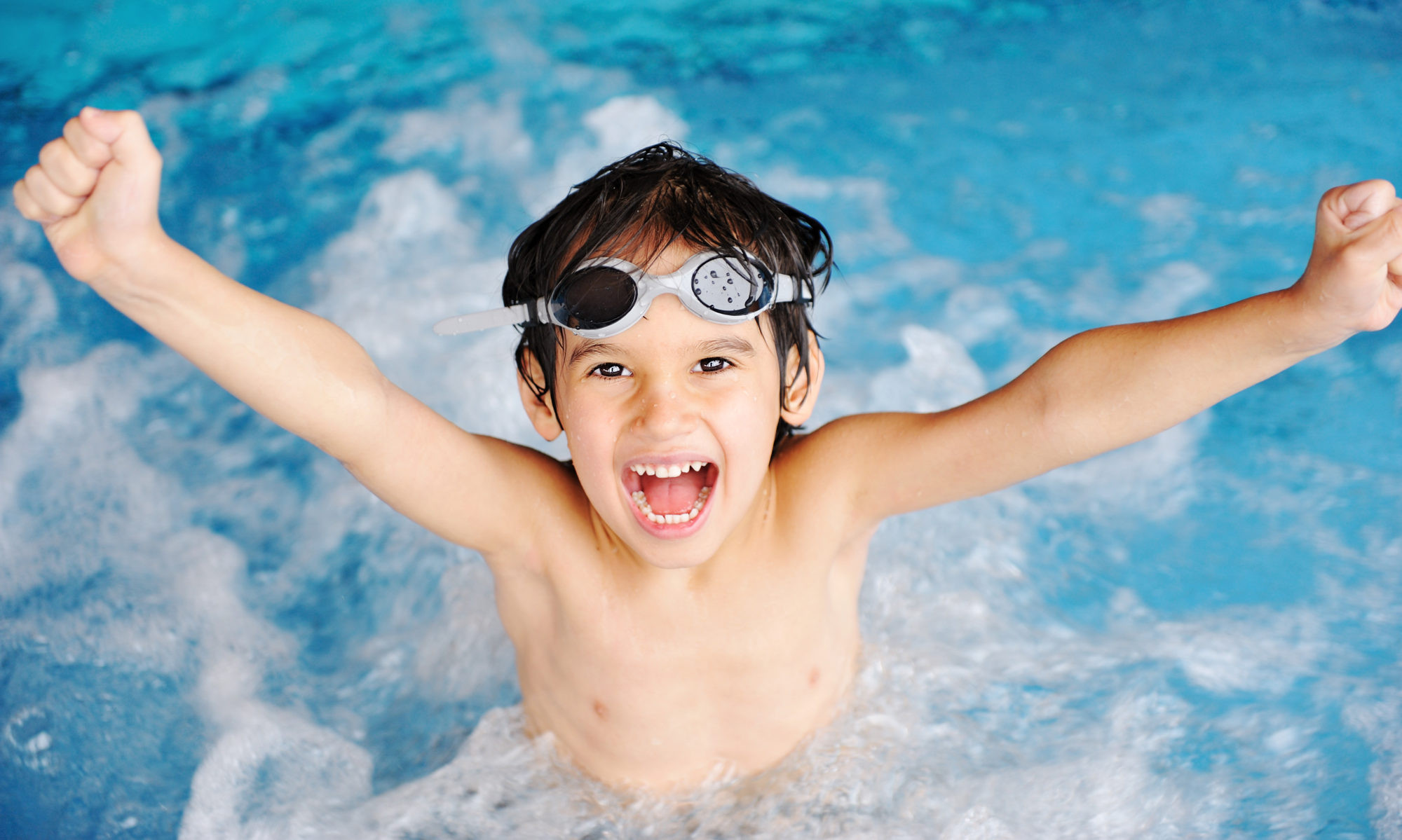The sensory experience of being in the water, as well as emotional associations, leads to a range of feelings your child might have about swimming. Be on the lookout for emotional distress that you can soothe and for opportunities to motivate your child. What are the five most common feelings you can expect to crop up when you’re teaching your kids to swim?
5 Common Feelings That Affect How Kids Learn to Swim
Fear
It’s never too early to help your child feel comfortable in the water. Younger kids—three and four years old—are less fearful than older kids—seven or eight years old—who are being introduced to the water for the first time.
Where does the fear come from?
- Fear of drowning can come from experience—like having slipped under the water in the tub for a moment—or from peers or the media.
- Fear can come from feelings of being out of control, confused or uncertain, powerless, or unsupported in the water.
- Fear can come from picking up parents’ own fear, worry or concerns.
- For some kids, new things are scary.
Being afraid is reasonable. Until your child has the skills of water safety, the water is a dangerous place. That’s the whole point. That’s why he needs to learn to swim.
Many actors feel stage fright before a performance. A common tool for getting past this fear is to reframe it as excitement. You can help your child by using this technique. Understand the fear. Address it. Reframe it as excitement.
First, talk to your child to try to isolate the reason for the fear. Next, address his concerns. If he’s afraid that he’ll slip and swallow water, explain that you’ll be holding him and won’t let that happen. If he fears the unknown, explain to him what to expect once he’s in the water, from how it will feel to what you’ll be doing and how long you’ll do it.
Once you’ve addressed his concerns, point out the physical signs of fear that he might be experiencing: increased heart rate, fast or shallow breathing, shivers, tension, a rush of adrenaline. All of those are things that also happen when you’re excited. Have your child focus on what he’s feeling in his body and how he’s felt those same things when he’s been excited about something. Associate the two feelings. It’s hard to stay afraid when you’re aware that your body is responding the same way it does when you wake up on the morning of your birthday party.
Anger
Your child might be angry at being forced to do something he doesn’t want to do. He might feel anger about feeling afraid. He might feel anger in the form of frustration about not being able to physically control his body in the water as well as he’d like to be able to.
If he’s angry at being forced to do something he doesn’t want to do, give him as many choices as possible. “Would you like to go swimming and then to the park or to the park and then swimming?” or “Would you like to swim for fifteen minutes or for twenty minutes?”
If he’s angry about feeling afraid, help him to express the anger and then address the fear.
If he’s frustrated about not having the same degree of control over his movement in the water as he does on land, remind him that it took a lot of practice to learn to walk and to learn to run. Tell him funny stories about those early days. Scale back the skill you’re working on to give him a break from the frustration and an opportunity to enjoy practicing something that he’s already competent doing.
Happiness
Spending time playing in the water with your parents in the warm sun is fun. Don’t gloss over the joy you and your child can share because you’re in a rush to get to the next skill. The spaces between learning new things will be filled with the laughter that becomes memories your child will carry with him for the rest of his life.
Security
Your child will rely on you to set the tone for your time in the pool. If you feel confident and if you provide physical and emotional support, your child will feel secure. That sense of security will make him receptive to what you’re trying to teach and will color his longterm feelings about swimming and the water.
Pride
As your child’s efforts pay off and he learns new things and masters new skills, he’s likely to feel proud. Help to encourage and validate that feeling. Talk about how well he’s doing to other adults in front of him. Give him a forum for sharing that pride.
